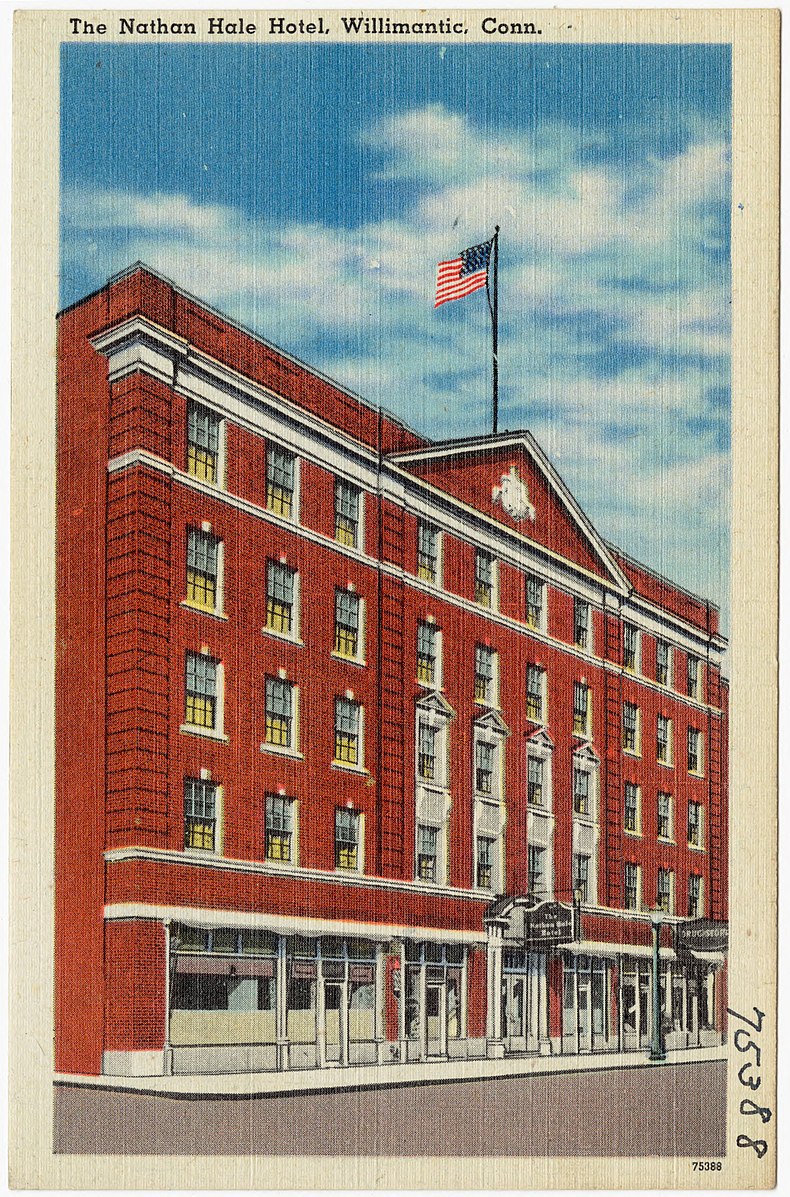
Those old 'railroad hotels'
Above, the Nathan Hale Hotel in Willimantic, Conn., in better days. Below, the Hooker Hotel in recent dark days.
TFrom Robert Whitcomb’s “Digital Diary,’’ in GoLocal24.com
The New England News Collaborative (NENC), a consortium of NPR stations, has a nice piece on its Web site about efforts to fix up that old textile mill town of Willimantic, Conn. (which called itself “The Thread City’’).
Much of the story focused on whether to tear down two old abandoned and adjacent Main Street hotels. One is the Nathan Hale Hotel, built in the Twenties and named after the Connecticut man who became a soldier and spy in the Revolutionary War and was executed by the British for his brave work. (He’s the official “State Hero’’ of Connecticut.) The other is the unfortunately named Hooker Hotel built in 1887 (where in some of its later years some women of that age-old profession were known to ply their wares). In fact, the building is named for the respectable Seth Chauncey Hooker, its developer.
Both the hotels were what used to be called “railroad hotels’’. They were close to the train stations in their towns or cities and were heavily used by salesmen, such as Willy Loman, the sad protagonist of the play Death of a Salesman.
Most of these hotels have long since disappeared with the demise of rail passenger service to many towns and even cities and its replacement, by car travel, aided and abetted by the Interstate Highway System. The rise of car culture led to most hotels and motels being built away from downtowns, on suburban shopping strips and/or close to the nearest Interstate – with lots of parking.
Marriotts and other chains, etc., can be very nice but I miss the quirky atmosphere of these old downtown hotels in New England, where local luminaries and others would gather, often almost every day, to eat in their dining rooms (Yankee pot roast! Finnan haddie!) and attend meetings of local civic organizations. Their lobbies were almost like town halls.
To read and hear the NENC’s piece, please hit this link:
https://nenc.news/historic-willimantic-connecticut-to-demolish-rough-reputation

